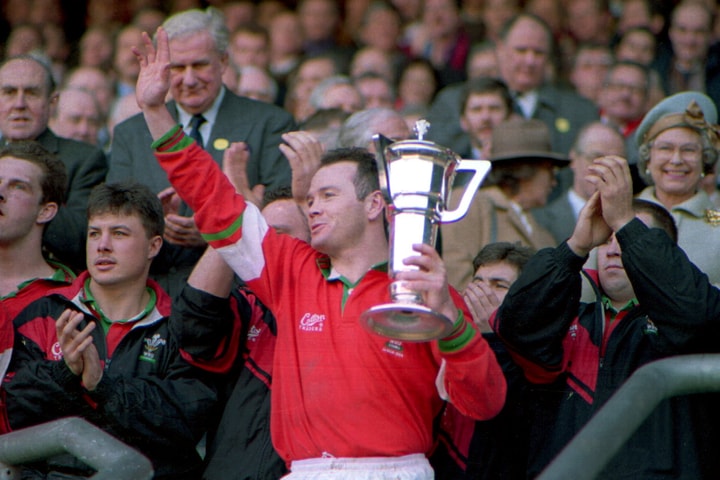
04 February 2026

On 5 November, an extraordinary wartime rugby 'international' will be replayed in the Netherlands town of Leeuwarden. A century ago in 1916, teams representing 'Engeland' and 'Schotland' played two exhibition rugby matches on foreign soil, to the delight of thousands of paying Dutch spectators. But these were not rugby tourists: the teams returned afterwards, not to their homes, but to the wooden huts of 'HMS Timbertown', their internment camp at Groningen.

F G Glassborow
In October 1914, 1500 men of three battalions of the Royal Naval Division under the command of Commodore Wilfred Henderson were cut off after the siege of Antwerp. Rather than become Prisoners of War in Germany, they crossed the border into neutral Holland, where they spent the duration of the war as internees under International Law, at 'Het Engelse Kamp'. Amongst their number was AC Williamson, Oxford University half-back, and Frederick George Glassborow, from Essex, great-grandfather of Catherine, Duchess of Cambridge. As the Great War raged and many of their RND comrades fell at Gallipoli (including Rupert Brooke who died of septicaemia on the voyage out) and later on the Somme, the men of Benbow, Collingwood and Hawke battalions formed a thriving British colony in the Netherlands, complete with inter-battalion sports competitions and a flourishing camp magazine. The first exhibition of the 'famous English game of Rugby Football' was played to 2500 enthusiastic spectators on Sunday 16 April, who paid up to 40 cents for the novel experience of watching rugby. For the players, the outing from Groningen to Leeuwarden afforded a rare release from captivity, described as 'the tit-bit of the season', although the 20 mile train journey took an hour. The reward was 'one of the best games we have had, fast open play with plenty of passing movements predominating'. 'England' won 19-7, receiving silver medals from the British Vice Consul, Mr Buisman, and followed up on 5 November with a second victory by 16-12.
 England v Scotland, 16th April 1916
England v Scotland, 16th April 1916
The story of these games was rediscovered by Dutch rugby historian Leo van Herwijnen. The excitement around these first 'internationals' on Dutch turf, and subsequent fixtures between internees and students from Amsterdam, Rotterdam, Delft and The Hague, led to the formation of the first rugby clubs in the Netherlands, the oldest being Delftsche Studenten Rugby founded in October 1918. At 2pm on 5 November 2016 a commemorative game will kick off exactly one hundred years later at RC Greate Pier in Leeuwarden. The event is led by the Rugby Make A Difference Foundation (Rugby MAD). Project Officer Ken Wright can be contacted at [email protected] and is keen to contact any descendants of the Timbertown internees.


About the Author - Stephen Cooper is the author of award-winning 'The Final Whistle: The Great War in Fifteen Players'. His second book, 'After the Final Whistle: the First Rugby World Cup and the First World War' is now available.